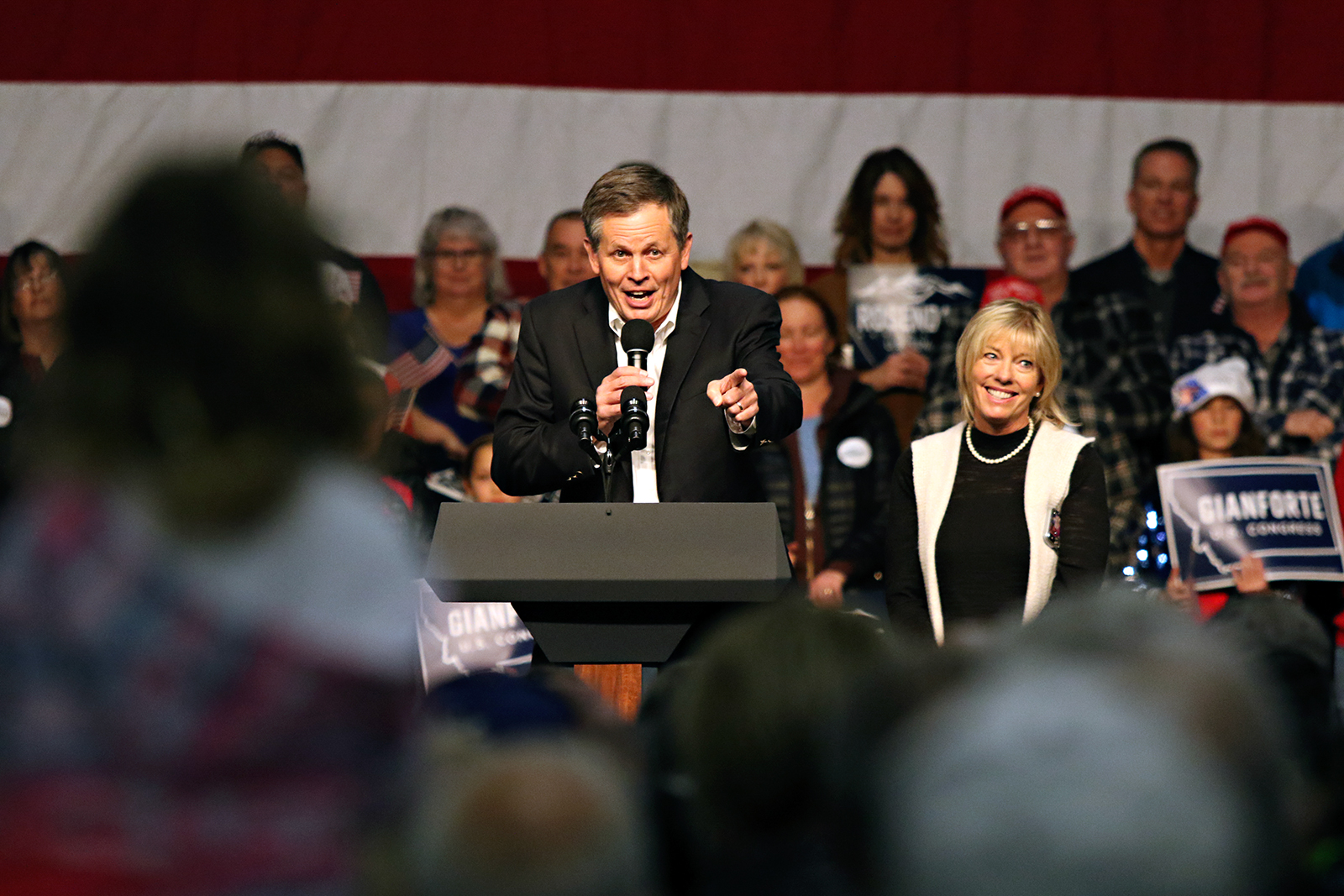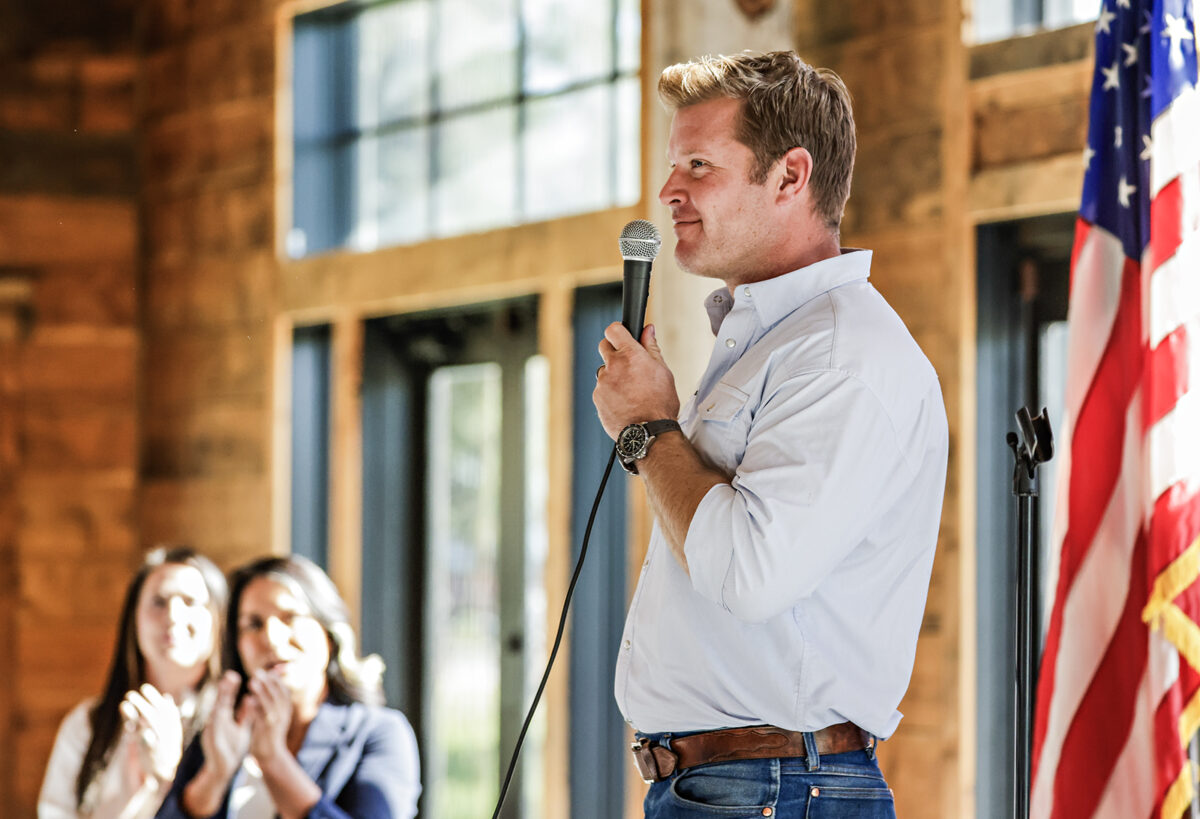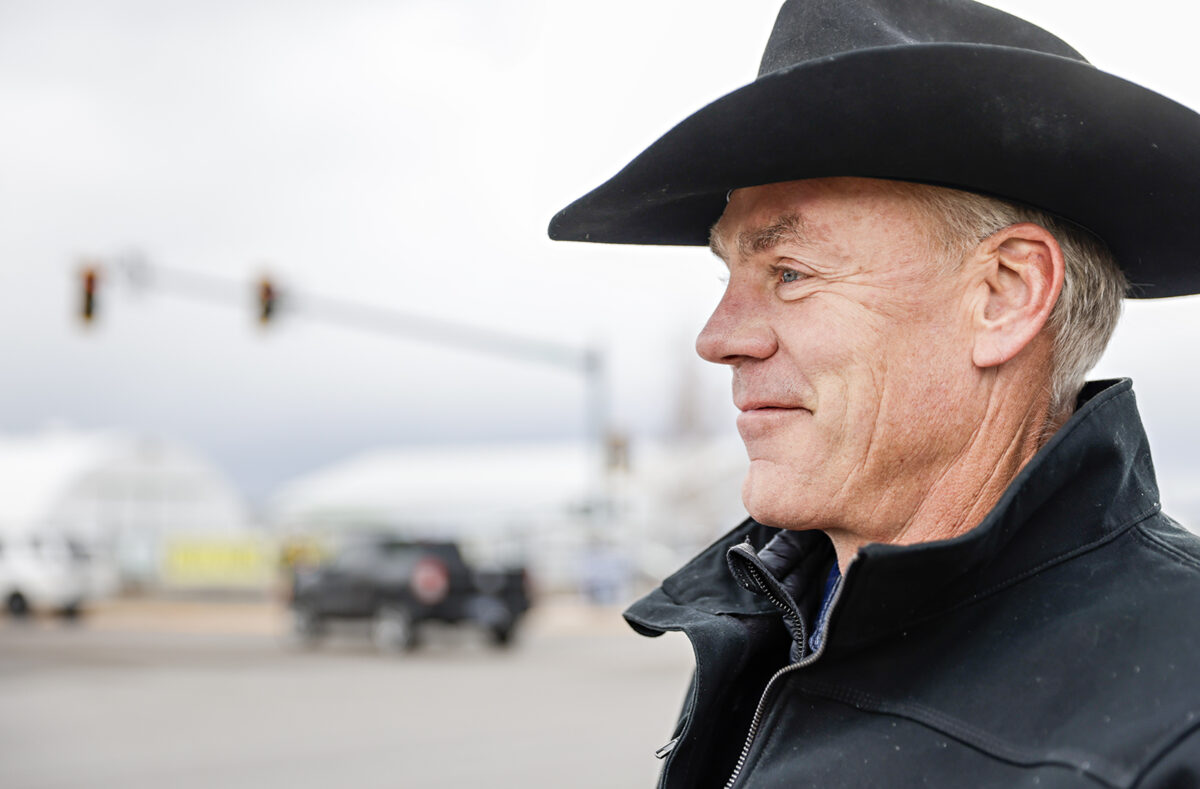Daines and Sheehy ‘Aligned’ in Opposition to Public Lands Sale in Senate Budget Bill
Senate is expected to vote on President Trump's "One Big Beautiful Bill Act" on Friday
By Mariah Thomas
Montana’s U.S. Sens. Steve Daines and Tim Sheehy are “aligned” in their opposition against the sale of public lands in the One Big Beautiful Bill Act, a spokesperson for Sheehy said. But it remains unknown whether they’ll vote no on a version of the legislation that includes a land sale proposal — a proposal that has served as one of several hurdles for Republican legislators working to pass the bill.
The act is a sweeping piece of legislation aiming to reduce and increase funding to several federal programs. Since June 11, it has included a proposal from Sen. Mike Lee, R-Utah, to sell more than 2 million acres of National Forest System (NFS) and Bureau of Land Management (BLM) land across 11 Western states for housing or “associated community needs.” The majority of funds raised from the sales would go in the general fund of the Treasury.
Lee’s proposal had exceptions for some areas like national parks, monuments, recreation areas and wilderness sites. Montana was also exempt from the proposal.
Lands eligible for sale would have included NFS and BLM land in Alaska, Arizona, California, Colorado, Idaho, Nevada, New Mexico, Oregon, Utah, Washington and Wyoming.
It caused a firestorm of opposition among conservation groups. Public lands have long been a popular issue for voters across the aisle. The 2025 Conservation in the West poll found less than a quarter of registered voters in eight Western states thought selling national public lands for housing development was the best approach.
The Senate parliamentarian found the proposal didn’t comply with the Byrd Rule Monday. The rule, which only applies in the Senate, prohibits extraneous provisions in a federal budget. A three-fifths vote of the Senate is required to waive the rule. That number, 60, is a bar Republicans are unlikely to clear with a 53-47 majority in the chamber.
But Lee shared on X he will reintroduce a revised version of his plan, taking National Forest System land off the table for sale. He also planned to “SIGNIFICANTLY REDUCE the amount of BLM land in the bill. Only land WITHIN 5 MILES of population centers is eligible.”
“Yes, the Byrd Rule limits what can go in the reconciliation bill, but I’m doing everything I can to support President Trump and move this forward,” Lee said.
Daines has negotiated with Lee as the proposal has gone through the Senate.
His spokesperson, Gabby Wiggins, told the Beacon after those talks were reported that they happened because “we have to get this bill passed.”
“Daines is a hard line on this,” Wiggins said. “He’s against the sale of public lands. He always has been and always will be.”
In response to a question Tuesday about whether Daines would vote yes on a bill with any public land sale provision, Wiggins responded with a statement:
“Senator Daines has always opposed the sale of public lands and is glad to see the provision removed from the bill.”
Montana’s other U.S. senator, Sheehy, is “aligned with Senator Daines on this issue,” a spokesperson said.

“He has been unwavering and consistent on the topic, believing public lands belong in public hands. He opposes the sale of public lands and is glad to see Senator Lee’s proposal taken off the table by the parliamentarian.”
Neither Sheehy’s nor Daines’ offices confirmed whether they would vote in support of a version of the bill that included Lee’s amended proposal.
Still, Daines and Sheehy’s opposition cut across party lines — something they’ve done on the issue of public lands before, when they voted with Democrats for the Hickenlooper Amendment in April.
That amendment aimed to prevent the use of proceeds from public land sales to reduce the federal deficit. They were the only two Republicans in the Senate to vote for the amendment, which did not pass.
Idaho senators Mike Crapo and Jim Risch have also spoken out against Lee’s proposal to sell public lands in the budget bill.
In the House, Montana’s congressmen opposed public land sales in its version of the One Big Beautiful Bill Act.
The House version had an amendment that would’ve sold over 500,000 acres of public lands in Nevada and Utah. U.S. Rep. Ryan Zinke, who formerly served as President Donald Trump’s Secretary of the Interior, led successful negotiations to strip the sale of public lands from the House version of the bill. He and U.S. Rep. Gabe Vasquez, D-New Mexico, formed a bipartisan Public Lands Caucus in the House to advocate against the sale. Montana’s other U.S. representative, Troy Downing, joined the caucus as well.
The legislation passed in a narrow 215-214 vote in the House on May 22 — without the land sale amendment included.
Zinke referred to the sale of public lands as his “San Juan Hill.” He doubled down on that position last week, posting on X that he was a “no” on the Senate’s version of the bill that sold public lands.

Zinke said Tuesday he was glad the parliamentarian made the “right decision.” He said he made a number of calls to the administration and senators regarding the issue of public lands. He was glad to see Idaho’s senators and Montana’s senators oppose the measure in the Senate.
He added he remained adamantly opposed to any public land selloff in the bill for several reasons. High on the list: public land sales typically come with a process for the public to weigh in. By passing it in the bill, Zinke said, the public doesn’t have a chance to do that.
Zinke also said he thinks other avenues exist to address housing issues aside from selling public lands. And, he said, once the land is sold, it’s gone.
“Public lands didn’t get us into debt, and selling public lands isn’t gonna get us out, so the idea that you’re going to address a $36 trillion debt by selling public land is folly,” Zinke said.
Once the Senate votes on the legislation, it returns to the House. Zinke said there were enough “rough riders” who are adamantly a “no” vote on proposals to sell public land there.
“I’m going to do my best to make sure that hill isn’t climbed.”
President Trump is pushing for the bill to pass by July 4.
He posted on Truth Social Tuesday morning, calling on the Senate: “GET THE DEAL DONE THIS WEEK.”
“NO ONE GOES ON VACATION UNTIL IT’S DONE,” he added.
The bill likely faces an uphill battle. Multiple provisions have created concerns for several Republican senators, the Associated Press reported earlier this month.
Josh Hawley, R-Missouri, has raised concerns over how a freeze on a Medicaid provider tax may impact rural hospitals. Other senators worry about shifting costs of Medicaid and food stamps to the states. And, fiscal hawks Rand Paul, R-Kentucky; Ron Johnson, R-Wisconsin; Utah’s Lee; and Rick Scott, R-Florida, worry the legislation doesn’t save enough money.
With a 53-seat majority, Senate Majority Leader John Thune can only lose three votes from his own caucus on the legislation. Thune told Axios Tuesday he anticipated the Senate would start voting on the bill Friday.